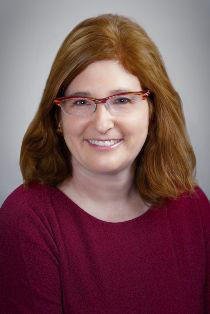The state’s child-welfare crisis will only worsen if $17 million lawmakers earmarked to keep families together is instead used for other services, child advocates say.
The Arizona Department of Child Safety and Gov. Doug Ducey want to reallocate the money for the upcoming fiscal year toward services already in place for the thousands of children in out-of-home care. It’s a move the governor’s spokesman says is mostly an accounting matter, but advocates say otherwise.
With roughly 20,000 children living away from their homes — out of about 21,500 with an open DCS case due to possible abuse or neglect — Arizona already ranks second nationwide for removing children rather helping families in crisis stay together.
“Arizona will never be able to reduce the skyrocketing rate of out-of-home placements without investing in proven strategies to keep families together,” said Eric Schindler, president of Child and Family Resources. While not all parents benefit from this approach, many do, he said, and it’s best to start with trying to keep children home.
Tucson mother Abigail Pauley can attest to that.
When someone called DCS on her in 2012, she learned they were concerned about her 8-year-old son, who has autism and was not yet talking. Pauley said she had recently lost her job and was living in a cramped apartment with her sister, who has a child with cerebral palsy. Both children yelled a lot, she said, and, with other children in the home, things were chaotic.
After that first visit from DCS, Pauley realized she wanted to “re-evaluate herself” as a parent. The help she received through Arizona’s Children Association was life-changing, she said. She became a more confident mother and learned to communicate with her children rather than overreact. She also was able to help her son more, she said, and help her daughters when they were feeling overwhelmed by their brother’s needs.
“Sometimes, when you are in these difficult situations, it’s really great to have somebody who comes in and has no idea about your situation, someone who is there to help, to be there and listen and be supportive,” she said. “It opened my eyes. Not only do you think more about how you are as a parent, but you re-evaluate yourself as a person and make that better, too.”
What needs to happen, Schindler said, is to invest double the resources on in-home help and prevention services, not cut them.
“Children in out-of-home care are there through no fault of their own, and we have to pay those bills, but we can’t keep closing the front door,” he said.
DCS has already moved funds the Legislature earmarked for in-home services to cover out-of-home costs, records from the Joint Legislative Budget Committee show, with $12 million transferred during the fiscal year that ended in June.
Ducey’s spokesman, Daniel Scarpinato, said the focus of the current proposal is in large part to meet a high demand for drug-treatment programs. He said DCS’ antiquated computer system compounds the issue, making it difficult to shift how funding is categorized.
“We’re not reducing funds toward any specific program,” he said. “We’re realigning the way these dollars are categorized. They do need to be allocating the dollars this way in order to appropriately spend them.”
Transportation costs and Parent Aide programs are also in need of more funding, he said, and these services cross over into both in-home and out-of-home services.
But Dana Naimark, president of Arizona’s Children’s Action Alliance, said there’s not much crossover at all, and that transportation costs and Parent Aide programs largely go toward families with children who have already been removed from their homes. Parents receiving those services are typically trying to reunify with their children.
“That’s the whole point here. This is not about keeping families together,” she said. “We’re asking why they aren’t instead spending it on in-home services and prevention.”
Sen. Steve Farley, a Tucson Democrat, said reallocating the funds goes against legislators’ intent, an issue over which there is largely bipartisan agreement.
“I understand they are in a triage situation,” he said, “but we are second in the nation for kids being taken out of their homes, and it won’t get better this way.”
Naimark said what worries her most is that by not shifting the emphasis, “We are just spiraling toward further crisis.”
“Clearly, they are not making a systemic effort to shift their resources into in-home services and that fact is the problem,” Naimark said. “There is consensus across the country, and within our own Legislature and yet, somehow, the agency (DCS) just doesn’t see it.”







